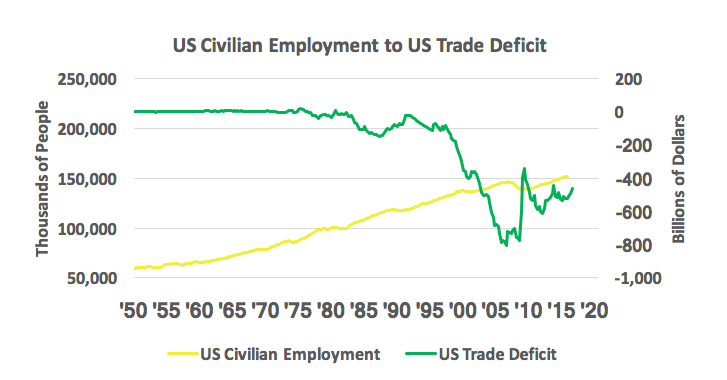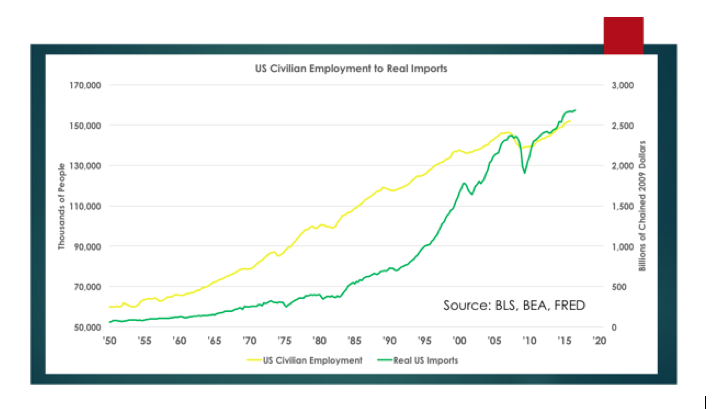
In my last Update, I pointed out that when trade is free, whether the value of imports exceeds the value of exports or the value of exports exceeds the value of imports, no one experiences anything that can meaningfully be called a deficit. In fact, I argued that all traders experience surpluses.
Today, I’d like to look at some evidence presented by George Mason University economist Donald Boudreaux in a talk that he gave recently for the Federalist Society at the Campbell University School of Law. He used this evidence to dispel three myths. These are myths that are being spread by both Bernie Sanders on the Left and President Donald Trump on the Right. All three of these myths are commonly accepted among non-economists. The first is that increasing trade deficits lead to decreasing employment. The second is that increasing imports lead to reduced employment. The third is that imports lead to reduced domestic wages.
Boudreaux presented three graphs examining the empirical evidence from 1950-2015, regarding each of these beliefs. He found that all three of these myths are just that, myths.
The first graph looks at trade deficits and employment. What it shows is that even during our worse trade deficit years (green line), from the 1990s to 2015, employment levels (yellow line) continued to rise at a steady if not increasing rate.

When Boudreaux examines employment against imports he gets the same myth-busting results. Again, since 1950, employment increases right along with imports.

Lastly, just to show that not only has employment been increasing along with imports but so have the wages of U.S. workers, Boudreaux looked at the relationship between real wages and imports. It is clear that that the level of imports has no observable negative impact on worker compensation.





